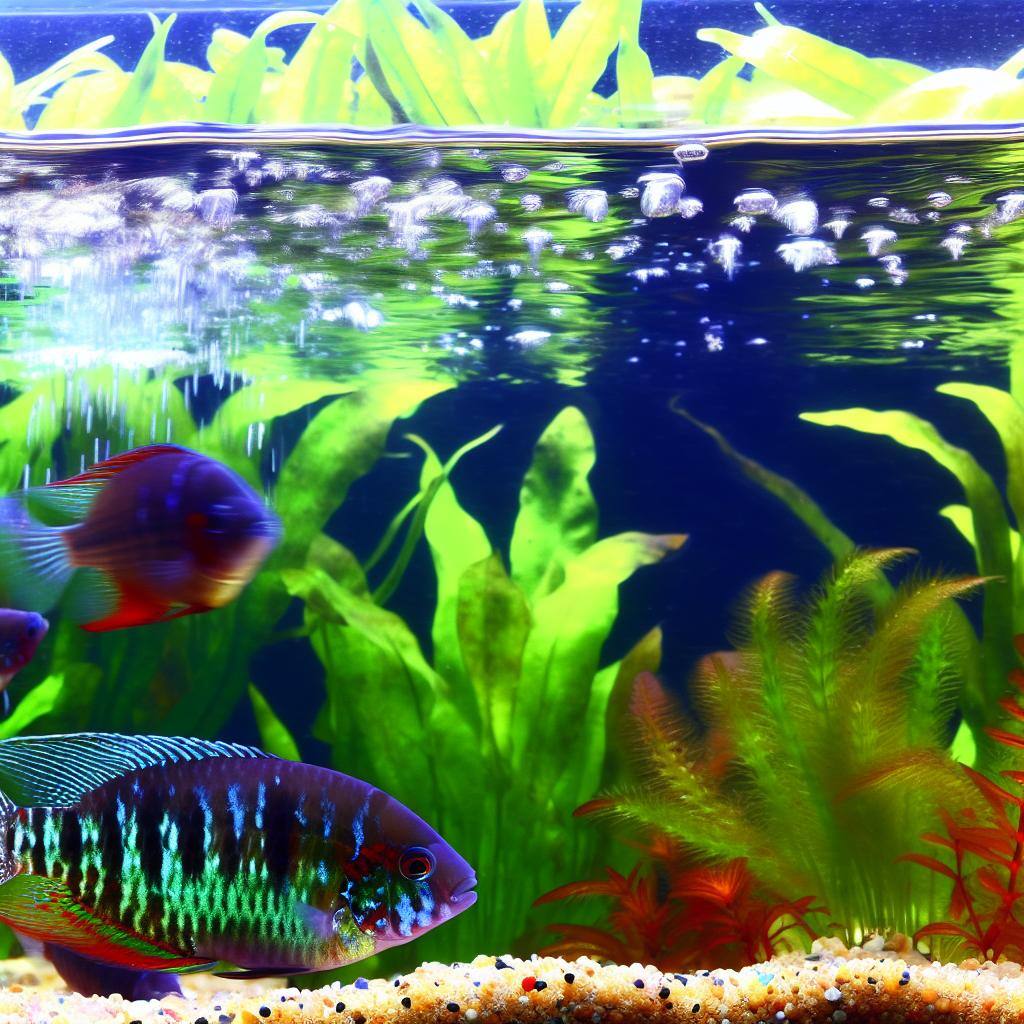
Unlock the secrets to effectively banishing Ich from your freshwater tank, ensuring a healthy environment for your aquatic friends.
Identifying Ich: Symptoms and Diagnosis in Freshwater Fish
Ichthyophthirius multifiliis, commonly known as Ich, is a pervasive parasite that can wreak havoc in freshwater tanks. Identifying Ich at an early stage is crucial for the health of your fish. The tell-tale signs include white, grain-like dots covering the fish's body and gills, erratic swimming, rubbing against objects due to irritation, and increased gill movements. Diagnosis is often made by observing these symptoms and may require a microscope to confirm the presence of the parasites.
Once Ich is suspected or identified, swift action is necessary. It's not only about the health of an individual fish but the equilibrium of the entire aquatic ecosystem in your tank. Understanding the lifecycle of Ich is essential for effective treatment and can prevent the parasite from becoming a recurring nightmare.
Understanding the Role of Live Aquarium Plants in Ich Treatment
Live aquarium plants play a multifaceted role in the battle against Ich. Besides adding aesthetic value, they contribute to the overall health of the tank by providing oxygen, absorbing nitrates, and creating a natural habitat. When it comes to treating Ich, live plants can help reduce stress for the infected fish by offering shelter and maintaining stable water conditions.
However, when treating Ich in a freshwater tank with medication, it's important to consider the compatibility of the treatment with your live plants. Some treatments can be harmful to plants, so opting for plant-safe medications or natural treatments like increasing water temperature and salt baths can be a more holistic approach. Always research or consult with a specialist before adding any medication to your aquarium to ensure the safety of both your fish and live plants.
Implementing Effective Treatment Strategies for Ich
To treat Ich in your freshwater tank effectively, you need a strategic plan. The most common method involves gradually raising the tank's temperature to speed up the parasite's lifecycle and using medication to kill the free-swimming stage of Ich. It is essential to follow the treatment instructions carefully and continue treatment for the recommended duration, usually several days after the last visible signs of Ich, to ensure all the parasites, including those in the latent stages, are eradicated.
Another strategy is the use of aquarium salt. Salt can be an effective treatment against Ich because the parasite cannot tolerate high salinity levels. However, not all fish and live plants can tolerate increased salt concentrations, so it's vital to verify the tolerance levels of your tank's inhabitants before proceeding with this method.
Maintaining Tank Health During and After Treatment
Maintaining optimal tank health is imperative during and after Ich treatment. This includes regular monitoring of water parameters such as temperature, pH, ammonia, nitrite, and nitrate levels. Frequent water changes are also necessary to reduce the concentration of the parasite and any medication residue.
It's crucial to provide a stress-free environment for your fish during this challenging period. Ensure that the tank is well-oxygenated and that dietary needs are met with high-quality food. After the treatment is complete, continue to monitor the fish for any signs of recurrence and maintain a regular maintenance schedule to keep your tank clean and balanced.
Preventing Future Ich Outbreaks in Your Freshwater Tank
Prevention is always better than cure, especially with a persistent nuisance like Ich. To prevent future outbreaks, quarantine new fish before introducing them to your tank. Regularly inspect your fish for any signs of stress or illness, as a healthy fish is less likely to succumb to parasites like Ich.
Maintaining a healthy tank environment is also critical. Live aquarium plants can be beneficial in preventing Ich by contributing to a stable ecosystem. However, ensure that any new plants are also quarantined and inspected for parasites before introduction. Finally, good hygiene, regular tank maintenance, and avoiding overcrowding can significantly reduce the risk of Ich and other diseases in your freshwater tank.
Additional Resources:
Ultimate Aquarium Care Guide
How To Cycle A Fish Tank Fast
How To Care For Aquarium Plants




Leave a Comment